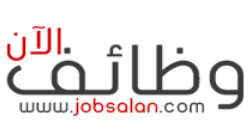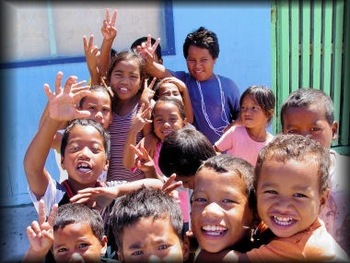
Worldplaces
اضافة الى المراجعة تابعملخص
-
تاريخ التأسيس 24 فبراير، 2006
-
المجالات الوظيفية وظائف القطاع الخاص
-
الوظائف المنشورة 0
-
شاهد 67
وصف الشركة
National Training Council – Marshall Islands
RMI Education and Skills Strengthening Project
The Government of the Republic of Marshall Islands has actually gotten financing from the World Bank for the Education and Skills Strengthening Project (ESSP) expense. It plans to apply part of the earnings for speaking with services.
The consulting services (“the Services”) will help the Project Manager and the RMI National Training Council in implementing the World Bank-funded project successfully.
The task will concentrate on supporting the Project Implementation Unit (PIU) in developing a framework for Recognition of Prior Learning (RPL) for TVET, focused on assisting the College of the Marshall Islands and the RMI National Training Council evaluate and improve the skills of employees through accredited college certification.
The detailed Terms of Reference (TOR) for the project are suggested in the connected Terms of Reference (ToR).
The National Training Council now welcomes eligible people (“Consultants”) to show their interest in offering the Services. Intrigued Consultants need to provide information showing that they have the required certifications and pertinent experience to carry out the Services (attach a Cover Letter of no more than four (4) pages attending to the obligatory experience and certification requirements curriculum vitae with a description of experience in comparable tasks, similar conditions, etc). Firms’ personnel might reveal interest through the utilizing firm for the task. In such a situation, just the experience and credentials of people shall be considered in the choice process. The criteria for choosing the Consultant are: A.
Mandatory Qualifications and Experience Master’s degree in education, training
, management, or a related field. Minimum of 5-10 years of experience working in TVET System. Curriculum Design and Systems.
Have 2-5 years’ experience designing and
carrying out RPL. frameworks, policies, and procedures. A sample of previous work will be needed as proof of previous experience. Excellent communication, training, and assistance
skills. Experience with working with varied stakeholders, including federal government. firms, TVET institutions, companies, and students in the Pacific. B. Desired Qualifications and Experience Ability to deal sensitively in a multicultural
environment and develop reliable group relationships with clients and pertinent stakeholders. The attention of interested Consultants (consisting of companies )is drawn to paragraphs 3.14, 3.16 and 3.17 of the World Bank’s”
Procurement Regulations for IPF Borrowers “July 2016 modified November 2020” Procurement Regulations “, stating the World Bank’s policy on dispute of interest. More info can be acquired at the address listed below during workplace hours, 0900 to 1700 local time. Expressions of interest need to be
delivered in a written kind to the address below (in person or by e-mail )by 5:00 pm, 23rd December 2024.
The subject line should state:”National Training Council Strategic Plan Consultant -complete name of the prospect”. Julius Lucky Director National Training [email protected]:Phone: 692 625-4521 Empowering Community Champions for Sustainable Development in RMI Gender Equality, Climate Resilience and Water Safety Training Majuro,
Republic of the Marshall Islands: The 4th
Women and Youth Training for
Gender Equality, Climate Change, Disaster Risk Reduction and Water Safety Management has actually just recently happened at the University of the South Pacific’s school in Majuro, the Republic of the Marshall Islands(rmi national training council ). This essential training was arranged by the United Nations Development Programme( UNDP )Pacific Office through the Addressing Climate Vulnerability in the Water Sector(ACWA) task. The week-long capacity-building training intended to empower women and youth with the understanding and practices required for climate-resilient water security management in the
Republic of the Marshall Islands(RMI ). This training reinforces a dedication to improving RMI’s water security and neighborhood durability versus climate modification impacts, especially women
and youth, guaranteeing that nobody is left behind. The training welcomed individuals from all 24 atolls and featured resource speakers from federal government companies, non-governmental companies, and global advancement partners from the rmi national training council Environmental Protection Authority, Climate Change Directorate, Office of the Chief Secretary, Ministry of Culture and Internal Affairs, National Disaster Management Office, Women United Together Marshall Islands, RMI Human Trafficking Task Force, Waan Aelõñ in Majel, Jo-Jikum, and the International Organization for Migration. In her opening remarks, Secretary for the Ministry of Culture and Internal Affairs, Brenda Alik, highlighted the significance of cumulative action in building a climate-resilient country.”It is our obligation to come together and collaborate. As we face the obstacles positioned by environment modification, comprehending its influence on our water resources is necessary for improving the well-being of neighborhoods throughout the Marshall Islands,”she said.
RMI Environmental Protection Authority General Manager Moriana Philip highlighted in her speech the essential function of women and marshall-islands.worldplaces.me youth in addressing climate-related challenges.”This workshop joins us from numerous communities to address the pressing issues we deal with today, consisting of climate-related difficulties, especially on our water resources.”We wish to emphasize the important function of women and youth in this job as your participation contributes to its success and beyond, “she said.
The very first day of the workshop covered important problems associated with gender equality, human rights, and public health within the Marshall Islands. It consisted of conversations on gender equality and mainstreaming, concentrating on the effects of climate change on water security and the disproportionate effects on vulnerable groups. The value of integrating gender equality and social addition into all task aspects was also talked about. Human rights and human trafficking were taken on, worrying the requirement for detailed security of susceptible populations
during emergencies. Furthermore, the workshop attended to gender-based violence, highlighting the numerous forms that can emerge in catastrophe circumstances, such as domestic violence and sexual browbeating. The agenda concluded with a concentrate on sanitation and health and their essential role in health, livelihoods, school participation, self-respect, and building durable communities. ACWA Project Manager Koji Kumamaru expressed his appreciation to all individuals
, stressing the significance of their contributions to their neighborhoods.”Women and youth are key to the success of the ACWA task. More importantly, you are the champs and future leaders who will return to your communities to empower others,”he said. Throughout the workshop, participants went to Rongrong Island and took a look at the 15,000-gallon Flatpack Modular water tank set up at the Rongrong High School Boys Dormitory as part of the ACWA task. The installation is a crucial component of the project, complemented by assistance from Australia
‘s Department of Foreign Affairs and Trade. The check out served as an important firsthand experience of the favorable effect of the ACWA project on the neighborhood and its
water resources. Marie Naisher from Jabat Island expressed her gratitude for the opportunity to sign up with the workshop and explained her desire to be part of the job when it reaches Jabat.
“This was my very first time participating in such training, and I discovered so much from the visitor speakers, group activities, and the website check out. I now understand the importance of tidy water and how to sterilize it. I’m excited about the ACWA task pertaining to Jabat and ready to help when it gets here,”she stated. Don Kobney, an ACWA website coordinator from Santo, Kwajalein, also shared his enjoyment.”The workshop and site visit improved my self-confidence and understanding of the water tank setup.
Seeing the 15,000-gallon flatpack modular water tank firsthand offered me a clear understanding of the system, and I’m looking forward to sharing this understanding with my community, “he stated. By the workshop’s end, participants were much better geared up to comprehend environment modification and its regional effects, drive adjustment and mitigation efforts, especially in water security, and use new resources to affect their communities favorably. ACWA is enabled thanks to the assistance of the Green Climate
Fund, with the job co-financed by the Government of the Republic of the Marshall Islands
. The Marshall Islands: Skills Training and Vocational Education Project Examines the performance of the task and highlights lessons. Supplies inputs to 2 broader examinations- the regional examination of ADB assistance for the Pacific and the special evaluation research study on Millennium Development Goals. The low educational achievement and lack of Marshallese skilled workers were largely due to the low quality of basic education, lack of access to education in the external islands, and weak points in abilities training and the trade and technical education system.
These supported an economy marked by high unemployment because of constrained private sector growth and federal government downsizing. Joblessness was specifically high amongst the youth and women in the outer islands. Ideal regional proficient workers for existing job vacancies
were unavailable, hence the importation of appropriately knowledgeable foreign employees. Thus, there was a mismatch between available tasks and skills of the Marshallese labour force. These conditions offered the initiative for the Government
of the Marshall Islands to prioritize technical and professional education training reforms. In 2000, ADB approved a loan for $9.1 million to enhance abilities training to provide well-trained employees needed for sustained economic and social advancement. This was to be attained through an integrated nationwide abilities training system. The task consisted of four components: advancement of a career awareness program, skills training enhancement, enhanced abilities training chances for ladies and youth, and institutional conditioning. The anticipated result was increased income-generating opportunities and employment for students, especially women and youth in the external islands. Overall, the task was ranked not successful. Limited progress was achieved in making the job responsive to the requirements of its recipients and private-sector companies. The long-standing weakness of bad numeracy and literacy competencies
among public elementary and secondary school graduates and dropouts getting in college or attending voc-tech education could be partly credited to the poor quality of basic education. The project was supply-driven and might not establish a strong linkage with private sector requirements or align its activities with the needs of the labour market. The status of the technical and trade education training system has actually remained basically the exact same after task completion. The research study put forward that ADB could motivate the Government of the Marshall Islands, through consultation and policy discussion, to follow through on the federal government’s
commitment to developing a committed labour info system to link technical and occupation education training program offerings with market demand. Although the task set up a labour market information system, in the absence of in-house staff capability at the National Training Council, it was not completely operational.




